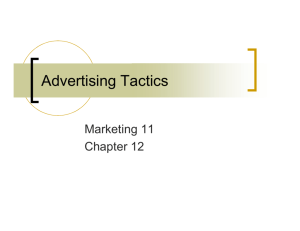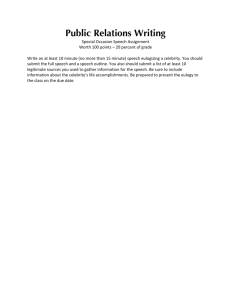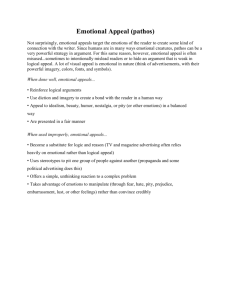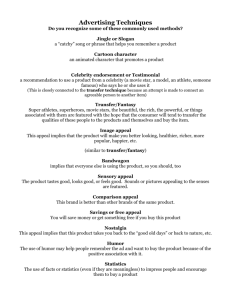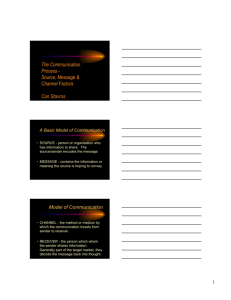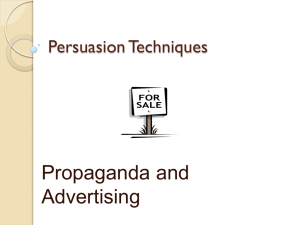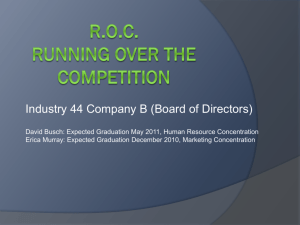Persuasive Techniques Worksheet: Advertising & Rhetoric
advertisement
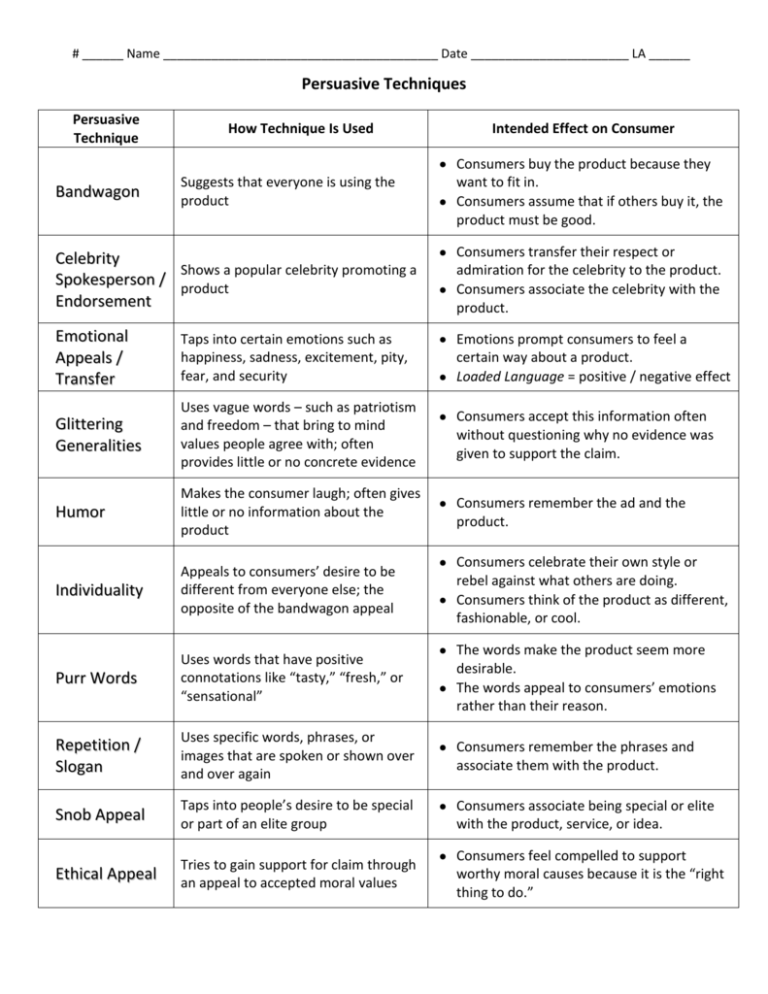
# ______ Name ________________________________________ Date _______________________ LA ______ Persuasive Techniques Persuasive Technique Bandwagon How Technique Is Used Suggests that everyone is using the product Intended Effect on Consumer Consumers buy the product because they want to fit in. Consumers assume that if others buy it, the product must be good. Celebrity Shows a popular celebrity promoting a Spokesperson / product Endorsement Consumers transfer their respect or admiration for the celebrity to the product. Consumers associate the celebrity with the product. Emotional Appeals / Transfer Taps into certain emotions such as happiness, sadness, excitement, pity, fear, and security Emotions prompt consumers to feel a certain way about a product. Loaded Language = positive / negative effect Glittering Generalities Uses vague words – such as patriotism and freedom – that bring to mind values people agree with; often provides little or no concrete evidence Consumers accept this information often without questioning why no evidence was given to support the claim. Humor Makes the consumer laugh; often gives little or no information about the product Consumers remember the ad and the product. Individuality Appeals to consumers’ desire to be different from everyone else; the opposite of the bandwagon appeal Consumers celebrate their own style or rebel against what others are doing. Consumers think of the product as different, fashionable, or cool. Purr Words Uses words that have positive connotations like “tasty,” “fresh,” or “sensational” The words make the product seem more desirable. The words appeal to consumers’ emotions rather than their reason. Repetition / Slogan Uses specific words, phrases, or images that are spoken or shown over and over again Consumers remember the phrases and associate them with the product. Snob Appeal Taps into people’s desire to be special or part of an elite group Consumers associate being special or elite with the product, service, or idea. Ethical Appeal Tries to gain support for claim through an appeal to accepted moral values Consumers feel compelled to support worthy moral causes because it is the “right thing to do.”
